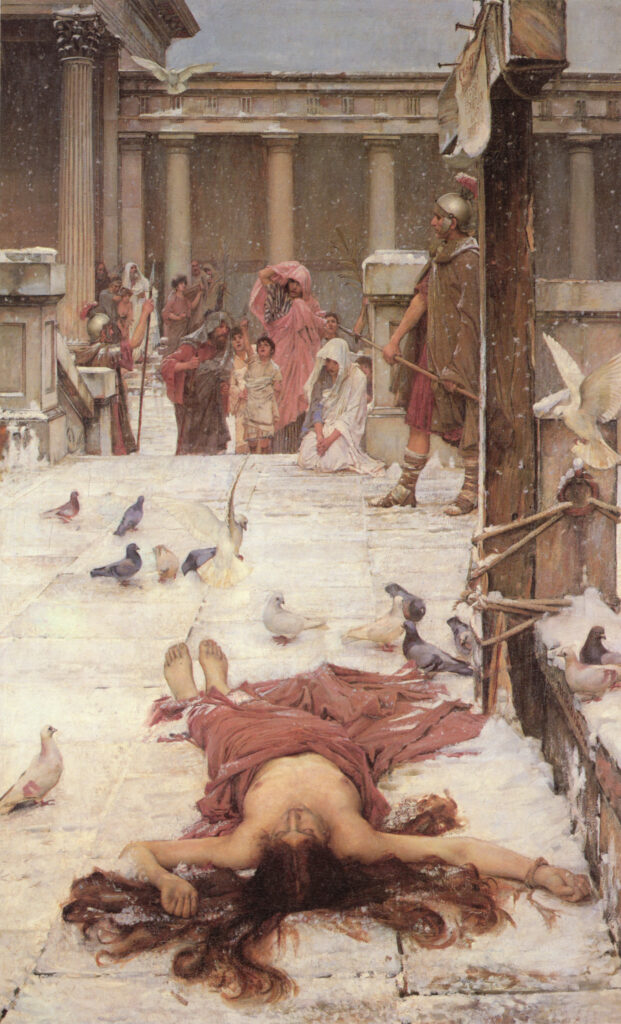The Two Saint Eulalias

The Romans were not an imaginative people save in one important area: pain. A culture that had turned sadism into both public spectacle and, for some of the imperial families, private sport, really let themselves go when it came to devising new and interesting ways of putting people to death. Crucifixion was, of course, the old standby, easily carried out by any Tom, Dick or Horace, but for a properly painful end the Romans really let their fancies fly.
So the gruesome tortures meted on 13-year-old St Eulàlia of Barcelona are, to some degree, support for the historicity of her end. What is somewhat more unusual was that there were, according to legend, two martyred Eulalias: Eulalia of Barcelona and Eulalia of Mérida. Both were young girls, both were martyred in Spain, and both suffered extreme tortures during their martyrdom.
Of course, there are some historians who insist that St Eulàlia of Barcelona and St Eulàlia of Méribel are the same person on the spurious grounds that there can’t really have been two 13-year-old virgins with the same name martyred for the Faith.
Nonsense, say the Catalans, hanging on to Laia, as she is known, for all they are worth. Besides, our little saint suffered much more than yours. Eulàlia of Mérida was merely tortured with hooks and burnt alive; Eulàlia of Barcelona really suffered. In 303 the brave girl went to Barcelona’s governor, Dacian, to tell him off for his cruelty to the city’s Christians. Since Dacian’s orders came straight from the Emperor Diocletian he rapidly sized up the relative advantages of clemency for the Christians or doing what the emperor said, and sentenced Eulàlia to as many tortures as she had years.
These included being whipped; torn with hooks; rolled down what is today the Baixada de Santa Eulàlia in a barrel filled with nails and glass; having hot oil poured on her wounds; being put in a flea-filled box; having her breasts cut off; and, the appropriate final punishment, crucifixion. Legend has it that Eulàlia suffered all these torments in silence.
What is not disputable is that Dacian may have miscalculated the percentages. Today, Eulàlia is the co-patron saint of Barcelona, with her feast day on 12 February, and she is particularly revered as an intercessor for children, while Dacian is a forgotten functionary of a failed imperial persecution.
0 Comments